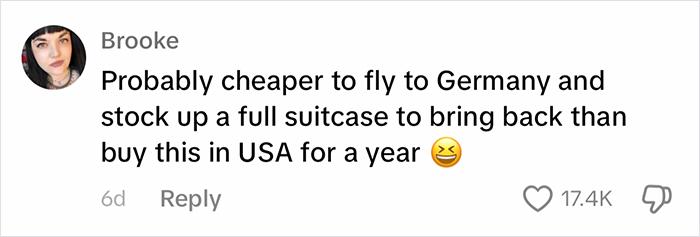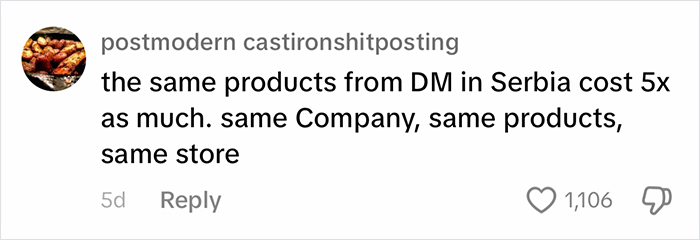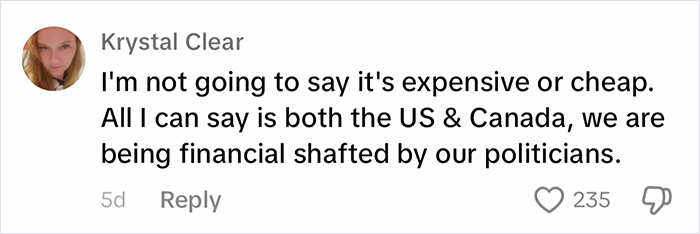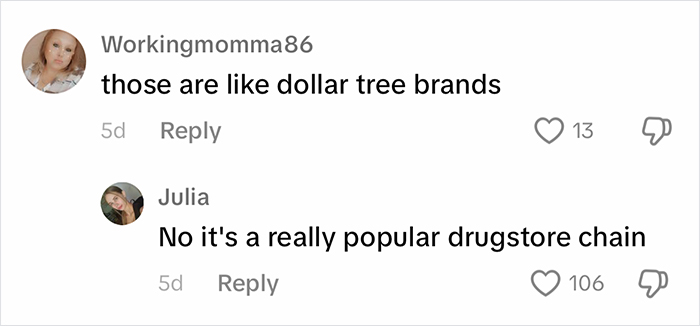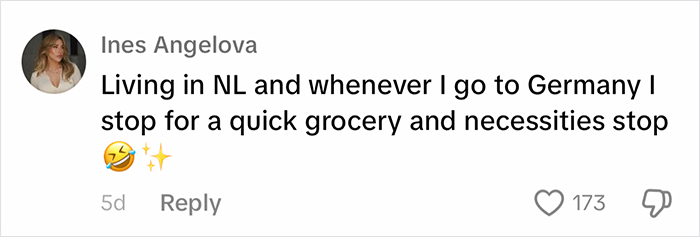It’s no secret that most of us have been dealing with rising prices for a while now. Just find an image of a grocery store catalog from a decade ago to see how little things used to cost. Indeed, it’s gotten so bad that just a selection of cheap goods is now enough to make a video get thousands of views.
TikTok couple Janine and Gen went viral after filming the prices of some items at a German drugstore. Viewers were surprised by the low prices and shared what these things might cost in their own home countries. We reached out to them via email and will update the article when they get back to us.
More info: TikTok
This American woman went viral for filming just how little things cost at a German drugstore
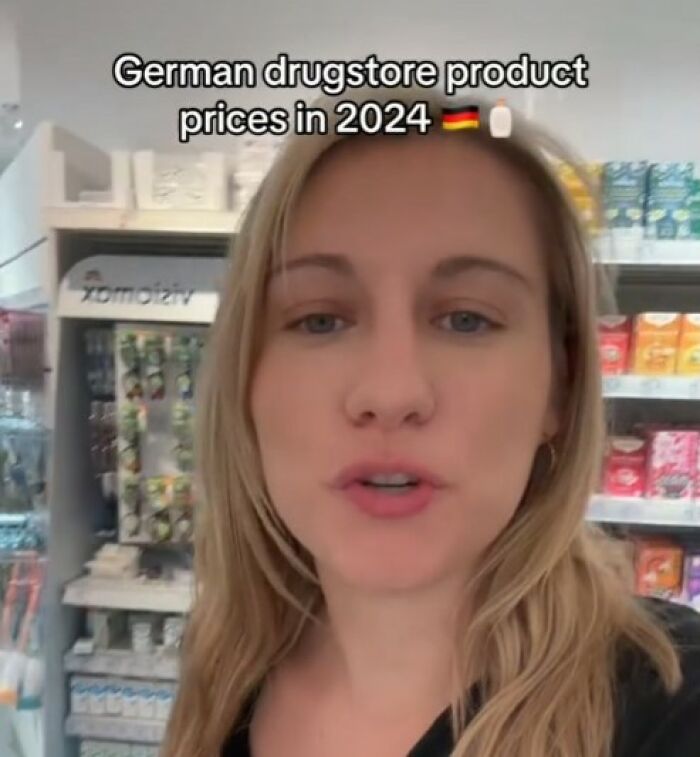
She went item to item, showcasing it’s price


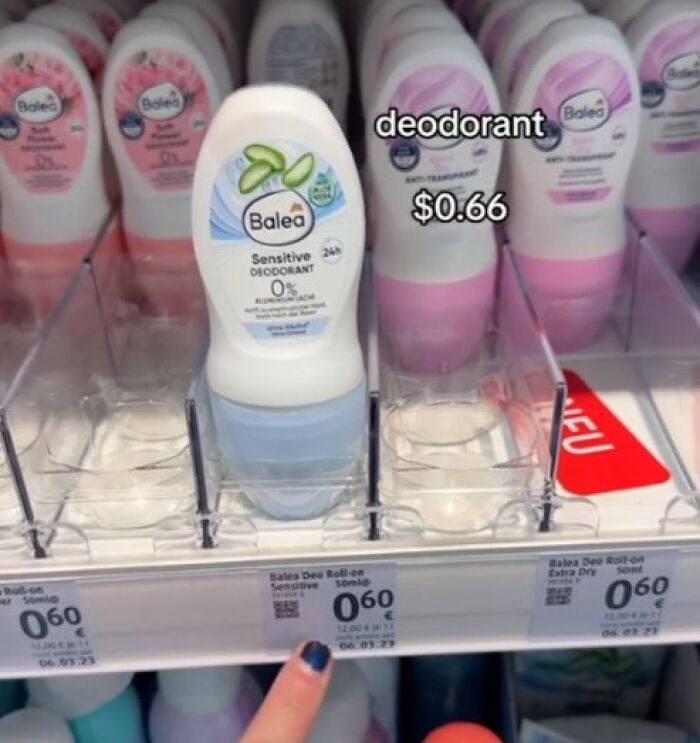
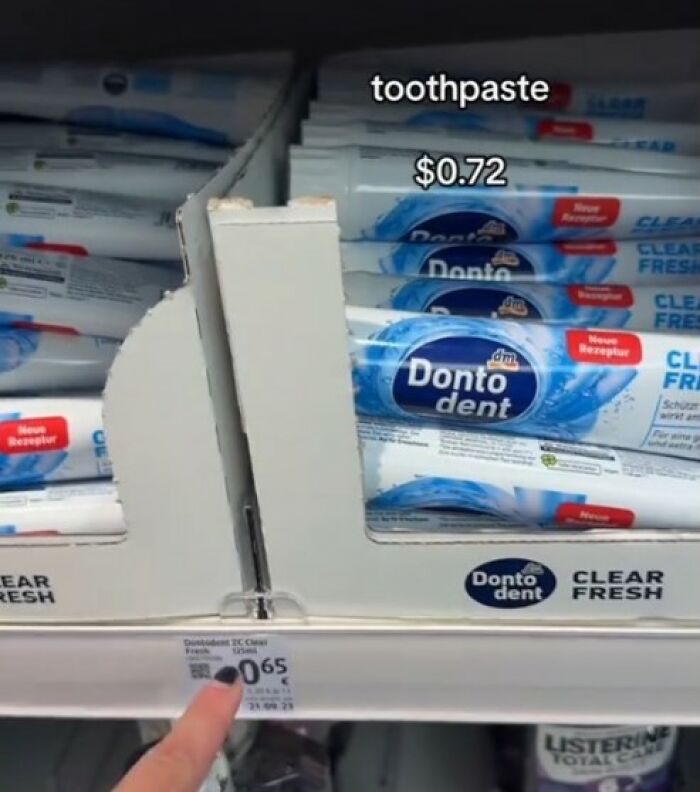

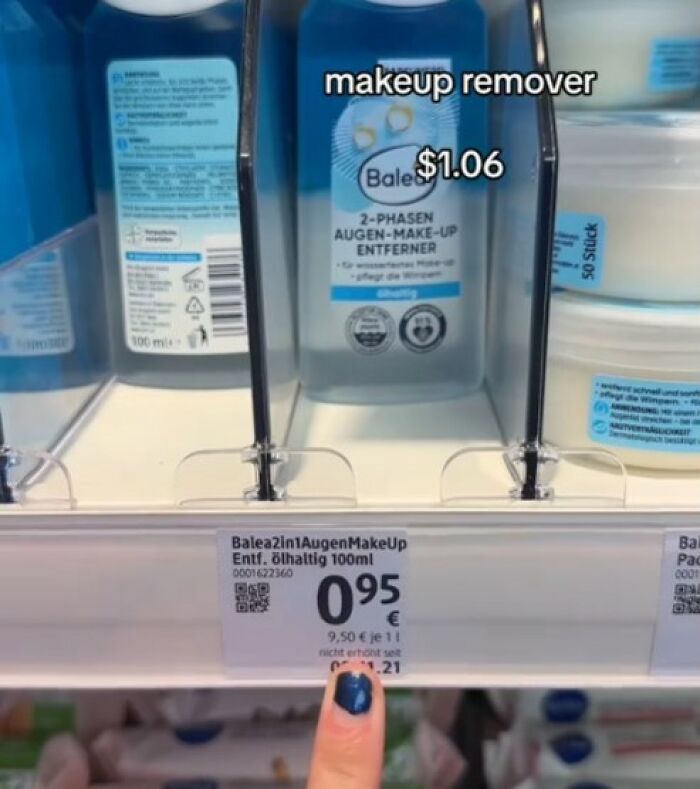
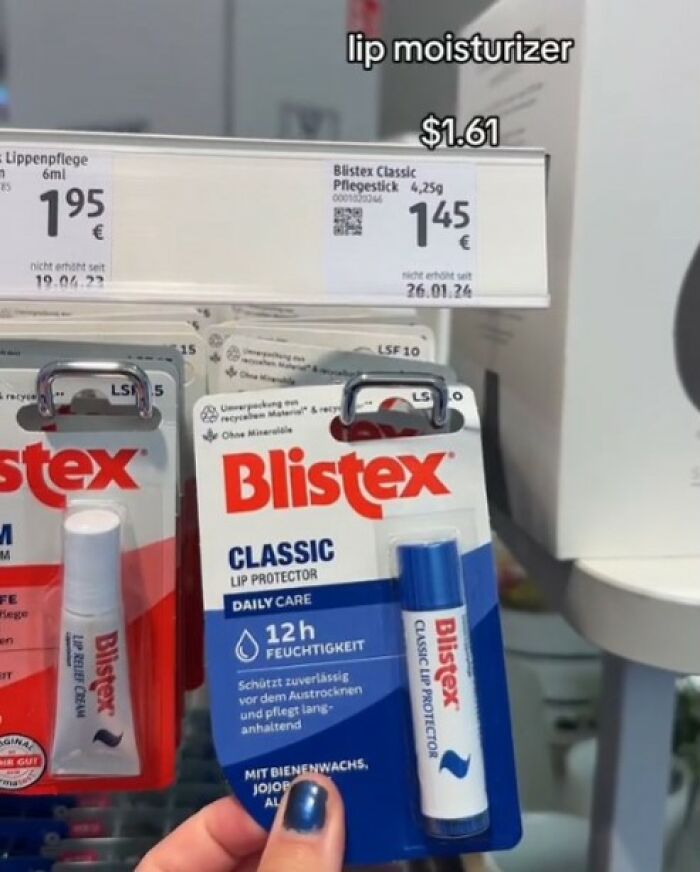

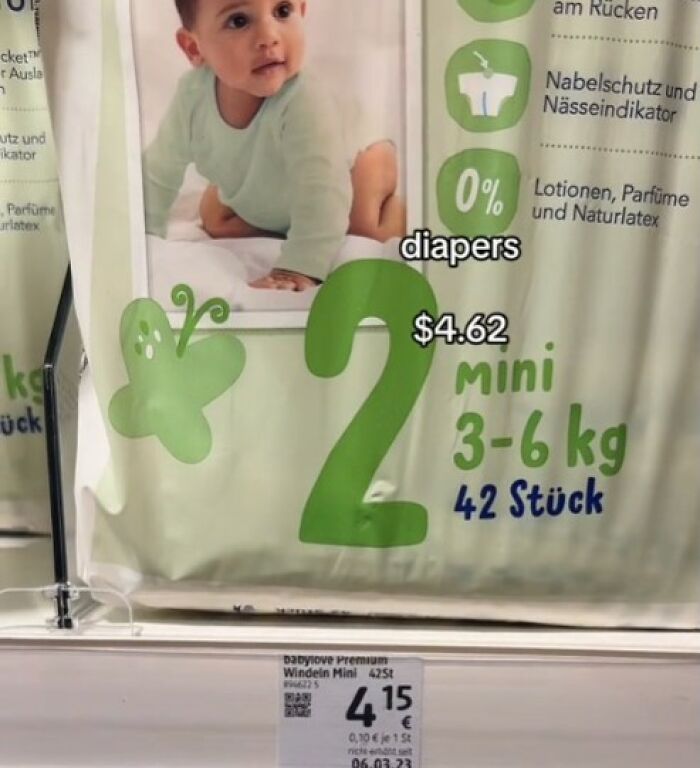


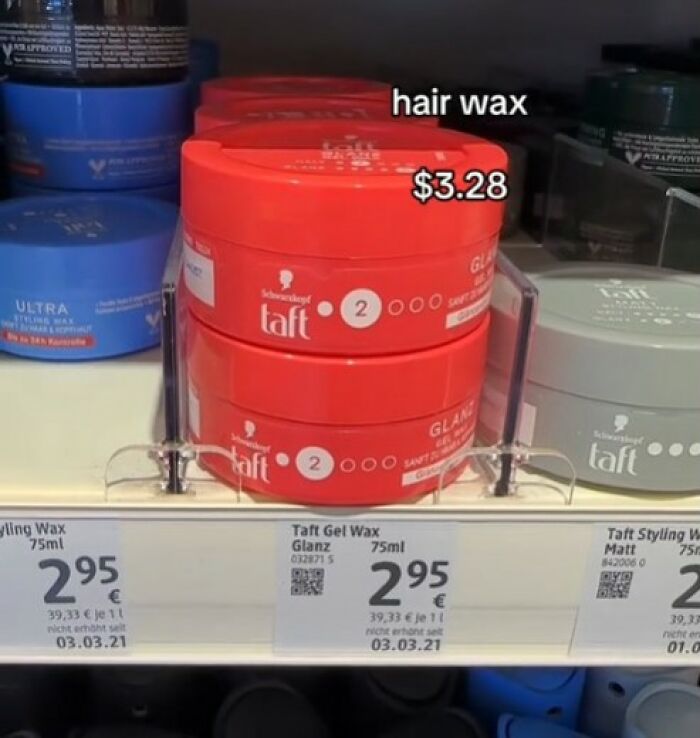

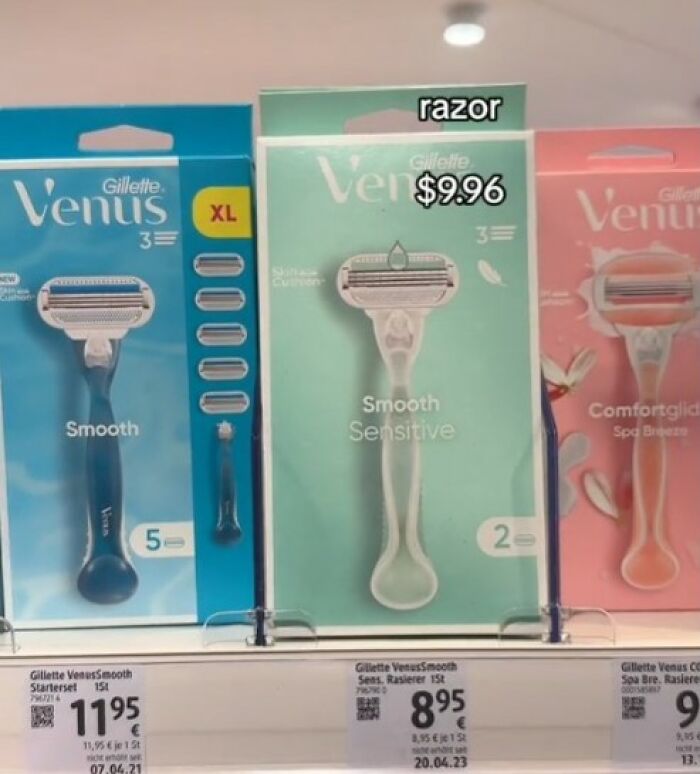



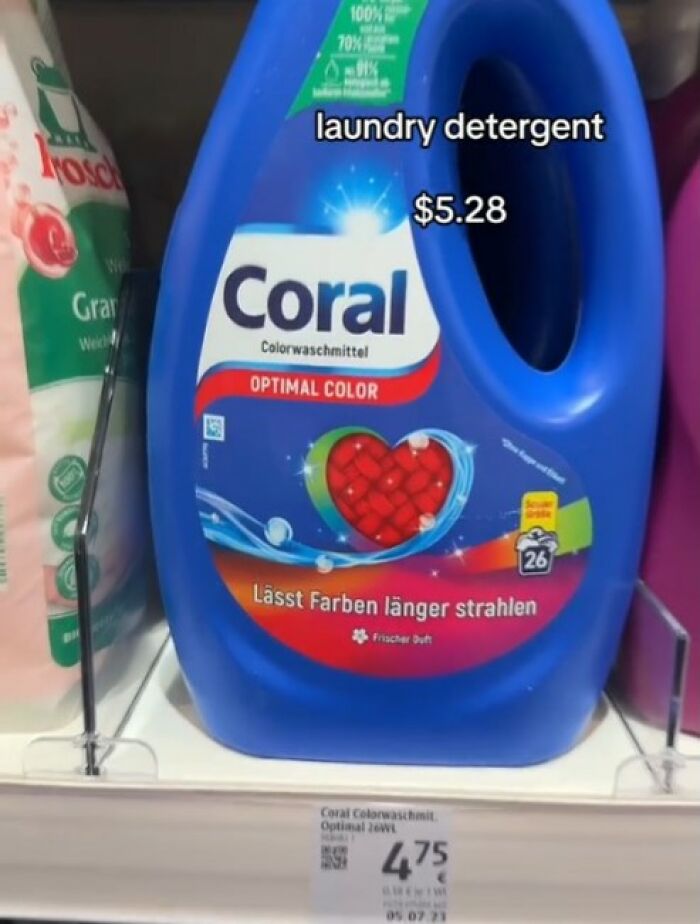
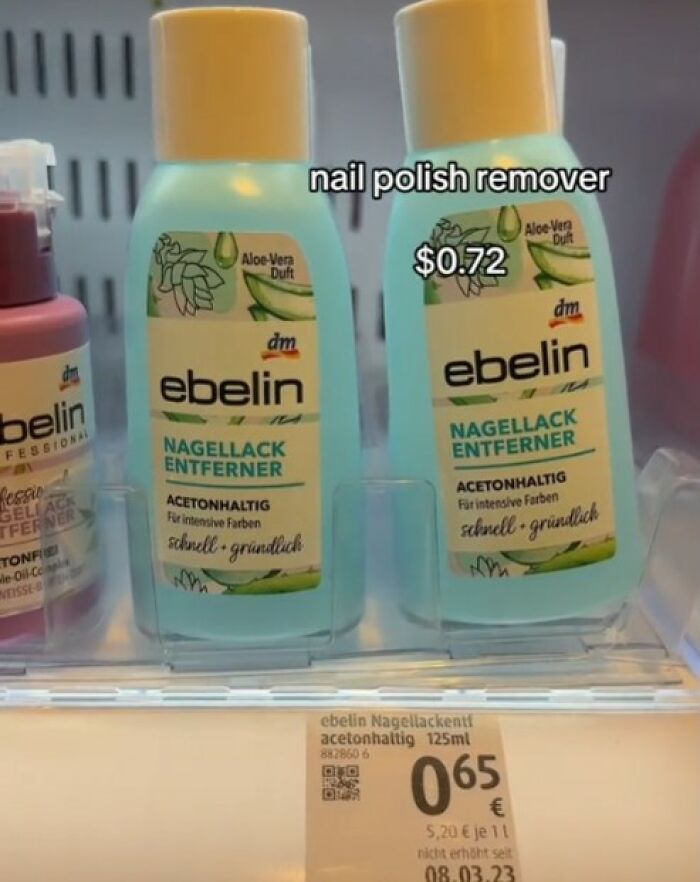
You can watch the full video here
@janineandgen can’t believe these 🇩🇪 drug store prices! #janineandgen #lifeineurope #germany #drugstore #lifeingermany #expat #dmgermany #exchangerate #cultureshock ♬ original sound – Janine | German in the US 🇺🇸
Germany is one of the world’s largest manufacturers of all sorts of basic goods

Image credits: Arukhan / pexels (not the actual photo)
When watching this video, it’s important to note that most of the items are “bottom shelf” goods, which are nearly always cheaper. Remember, as with really any commodity, there is a spectrum. Take shampoo. There are professional shampoos that can go for almost three figures, or, like the ones in this video, for under a single euro. Remember, depending on the sort of clientele your local store targets, prices will vary for the same item. If you don’t believe me, visit an upscale, shopping street drugstore and a suburban corner store and compare.
The comments, some of which can be found below, were full of people from various countries complaining that these same items cost more in their countries. For the purpose of argument, we will take this at face value, although one shouldn’t make sweeping generalizations about any economic factors based on internet comments. Yes, there are all sorts of issues for the “common person,” but always do your own research and figure out your own finances, don’t just rely on anecdotal internet evidence.
First and foremost, Germany is a manufacturing powerhouse. It exports nearly $1.4 trillion outside of the EU. If you do happen to live in the EU, a simple glance at the items in your local drugstore will reveal a whole host of things that are ultimately made in Germany or made by a German company. This sounds like common sense, but it’s worth repeating, the German economy is very large and there are a lot of people in Germany. Simply put, this means that German companies (and, arguably, consumers) enjoy the benefits of something called “economies of scale.”
Put simply, this means that the individual unit costs, for example, the cost of making a single canister of shaving cream, decrease as one makes more of them. This is perhaps an oversimplification, but the basic principle still stands. If you’ve ever been to Costco, you can see just how much cheaper bulk purchases can be. Naturally, if you have a large population, and Germany certainly does, you will make more of them. A country with a smaller population will pay more to import them, as scale also applies to things like shipping.
Companies will do everything they can to make you pay more if they can get away with it

Image credits: Karolina Kaboompics / pexels (not the actual photo)
But wait, there’s more! If you live in a country that imports a lot of goods, you will probably see higher prices than in the nation where it was manufactured. This isn’t just an added cost of transportation, although that can be a considerable expense. In most countries, a tariff is applied to every imported product. This “cost” is almost always then passed down to the customer. Similarly, countries tend to “match” the tariffs placed on their goods. So if you are really into politicians who promise to limit foreign goods, keep in mind that this will not only increase their prices, but make your local goods more expensive abroad, generally hurting their sales potential.
A major part of the EU’s success is that it maintains free trade among member countries. This means that the majority of EU goods within the EU (like the many items shown in this TikTok) will generally be cheaper than outside of it. Obviously, the various nations in the EU do not all have similarly sized economies. So if you are a German manufacturer of, say, shampoo and you want to use the imposing scale of your manufacturing capacity to sell in other countries, you will probably aim to make your goods cheaper to remain competitive. At that point, you will very likely think, why don’t I sell them in German as well? So you manufacture even more and, guess what, the more you make, the lower the per-unit cost, the even cheaper the item.
Of course, Germany is a large country, so there isn’t just one company doing this. Indeed, in most advanced economies, any country is going to have to deal with competition. After all, price is a very important part of how we as customers choose what to buy. It really takes a lot to get us to pay more when a cheaper alternative is staring us in the face. If this sort of competition doesn’t exist, the company might feel free to just up the price simply because they can. After all, are you going to just stop brushing your teeth? This is a form of “price gouging,” where a company knows that it can get away with making you pay more. Airlines, for example, have been steadily adding all sorts of random costs because they know we still need air travel.
The retailer will do this as well. If the store management knows that most of its customers aren’t willing to “shop around,” there is nothing to stop them from just upping the price. Many of the commenters note that the exact same products in their home countries cost more. There are “simple” explanations for that, logistics, economies of scale, taxes and tariffs, but one often overlooked cause is the simple fact that businesses are greedy and will do everything they can to make you pay more if they know they can get away with it.
Many viewers were surprised by just how affordable things were



